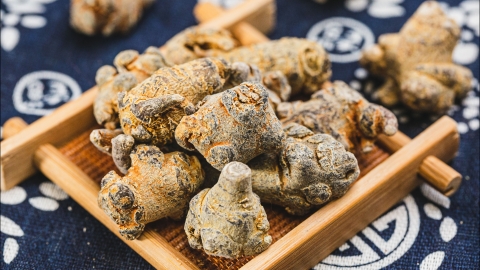Can San Qi (Notoginseng) and Huang Qi (Astragalus) be taken together?
Generally speaking, Panax notoginseng (San Qi) and Astragalus (Huang Qi) can be taken together, but their use should be guided by a physician to ensure safety and effectiveness. The analysis is as follows:
San Qi is warm in nature, with a sweet and slightly bitter taste. It functions to resolve blood stasis, stop bleeding, promote blood circulation, and relieve pain. It is commonly used to treat conditions such as hemoptysis, hematemesis, hematochezia, metrorrhagia, and traumatic bleeding. Additionally, it can improve blood circulation and alleviate pain.

Huang Qi is slightly warm in nature, sweet in taste, and enters the lung and spleen meridians. It functions to replenish vital energy, raise yang energy, strengthen the exterior to stop sweating, promote diuresis to reduce edema, and nourish fluids and blood. It is commonly used to treat symptoms such as fatigue due to qi deficiency, poor appetite with loose stools, and sinking of middle jiao qi.
When San Qi and Huang Qi are used together, they can synergistically exert the effects of resolving blood stasis and stopping bleeding, promoting blood circulation to relieve pain from San Qi, and replenishing qi to strengthen the spleen and lungs, securing the exterior and stopping sweating from Huang Qi. This combination is often used to treat stabbing pain in the chest and abdomen, prolonged diarrhea with rectal prolapse, qi deficiency edema, internal heat with thirst, and other symptoms, especially suitable for conditions characterized by qi deficiency with blood stasis.
Both are traditional Chinese medicinal herbs, and their dosages should be adjusted according to individual constitution and condition under the guidance of a physician. Self-medication should be avoided to prevent potential risks. A light diet should be maintained during use, avoiding spicy, greasy, and irritating foods, which may interfere with the efficacy of the herbs. Special populations such as pregnant women, children, and patients with hypertension should avoid or use cautiously, and consultation with a physician is necessary if other medications are currently being taken.






